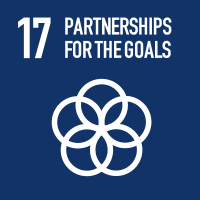Studying at the University of Verona
Here you can find information on the organisational aspects of the Programme, lecture timetables, learning activities and useful contact details for your time at the University, from enrolment to graduation.
Study Plan
This information is intended exclusively for students already enrolled in this course.If you are a new student interested in enrolling, you can find information about the course of study on the course page:
Laurea magistrale in Management e strategia d’impresa - Enrollment from 2025/2026The Study Plan includes all modules, teaching and learning activities that each student will need to undertake during their time at the University.
Please select your Study Plan based on your enrollment year.
1° Year
| Modules | Credits | TAF | SSD |
|---|
1 module between the following2° Year activated in the A.Y. 2024/2025
| Modules | Credits | TAF | SSD |
|---|
1 module between the following1 module between the following1 module between the following| Modules | Credits | TAF | SSD |
|---|
1 module between the following| Modules | Credits | TAF | SSD |
|---|
1 module between the following1 module between the following1 module between the following| Modules | Credits | TAF | SSD |
|---|
Legend | Type of training activity (TTA)
TAF (Type of Educational Activity) All courses and activities are classified into different types of educational activities, indicated by a letter.
Relationship and digital marketing (2024/2025)
Teaching code
4S008089
Academic staff
Coordinator
Credits
9
Language
Italian
Scientific Disciplinary Sector (SSD)
SECS-P/08 - MANAGEMENT
Period
Secondo semestre LM dal Feb 17, 2025 al May 23, 2025.
Courses Single
Authorized
Learning objectives
The main purpose of this course is to get students to think about Digital Marketing from a strategic point of view of Relationship Marketing, in order to ehnance their abilities to remember, understand, and apply the main concepts of Relationship and Digital Marketing: Relations, Networks, Interactions. Analytical thinking is provided through multiple case study analysis, included some guided tours to local companies. Knowledge application will be tested through group projects. Students will be also called to test their problem solving skills, so that, at the end of this course, they will be able to create and present to a professional audience their Digital Marketing Projects.
Prerequisites and basic notions
It is suggested to approach this teaching with some basic knowledge of marketing.
Program
The Relationship Marketing Orientation:
- the genesis, different approaches, and principles of relationship marketing
- relationships, the network, interactions
- the management of classic market relationships, special market relationships, mega relationships, nano relationships
- measuring the return on relationships, marketing indices and the role of the ROR (Return on Relationship)
Planning communication from a relationship perspective:
- the conversational models, from communication strategy to operational levers and omni-channel marketing
- the omni-engagement rate and control indices
Digital and social media marketing from a relational perspective:
- digital corporate identity strategy
- analysis of online user behaviour; the customer journey; and social intelligence;
- selection of tools and platforms for digital and social media marketing;
- The relationship with the online community, digital management of different types of relationships.
Relationship marketing control phase and support with social media marketing. metrics.
Didactic methods
The lectures will be delivered in person (the course is taught by two lecturers coordinated with each other), using relational and interactive methods, but will also be recorded to allow asynchronous use. We make it clear, however, that the interactive moments in the classroom are hardly accessible from the video lectures. Since this is a course on ‘relationships’, an ‘active’ attendance is suggested, with a high degree of interaction, both in presence and at a distance (via the course's Telegram group). Teaching will include classic frontal lectures, supplemented by exercises and cases to be developed individually or in small groups in the classroom, on moodle or on Telegram. Some lessons will be conducted by applying experiential teaching methods in presence.
Learning assessment procedures
- The examination consists of the development of a Project Work to be carried out individually or in a team. Objectives and delivery methods will be indicated during the lectures.
- The individual oral presentation of the project work is compulsory, i.e. a theoretical-technical discussion of the decisions taken is required.
- In addition, up to 3 bonus points may be awarded to students who actively participate in the course (max. 1 point) and/or take part in challenges and intermediate exercises proposed by the lecturers (up to 2 points).
Evaluation criteria
Evaluation criteria for digital marketing plan including oral exposition= communication, organizational, learning, application, critical, and propositional skills will be taken into account. Specifically:
- communication skills (setting and structure of plan contents; oral exposition with confidence and mastery of contents); organizational skills (knowing how to organize with logic and coherence); learning skills (demonstrating theoretical knowledge and RDM techniques); application skills (plan contents demonstrate the ability to apply theoretical knowledge and RDM techniques to real cases/examples); critical skills (knowing how to interpret data and evaluate the limitations of the various theories analyzed); propositional skills (plan contents are evaluated in knowing how to suggest new ideas and solutions to highlighted problems).
Criteria for the composition of the final grade
The grade in thirtieths is unique and inclusive of the content of the digital marketing plan and the oral presentation; any bonus points accrued from the delivery of project work or active attendance during the course (max 3 points) will be added to the final grade.
Exam language
Italiano (o inglese su richiesta)



